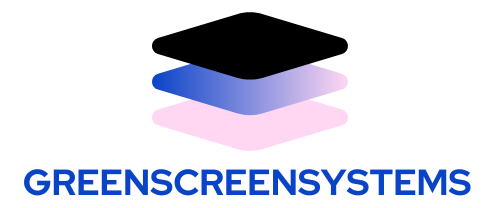Table of Contents
ToggleIn a world where gadgets reign supreme, consumer electronics companies are the unsung heroes behind our daily tech obsessions. From smartphones that double as mini-computers to smart fridges that can order groceries, these companies are constantly pushing the boundaries of innovation. It’s like living in a sci-fi movie—without the flying cars, of course.
Overview of Consumer Electronics Companies
Consumer electronics companies play a crucial role in advancing technology. Major firms such as Apple, Samsung, and Sony dominate the market with innovative products like smartphones, TVs, and home appliances. Each company implements research and development strategies to stay competitive in an ever-changing industry.
Emerging companies also contribute significantly to the landscape. Brands like Xiaomi and OnePlus disrupt traditional markets by offering high-quality devices at competitive prices. These new entrants often target younger consumers, prioritizing cutting-edge features and affordability.
Innovations have led to the creation of smart home devices. Companies develop smart speakers, security systems, and home assistants that allow users to control their environments seamlessly. This integration enhances convenience and security in daily life.
Global demand drives consumer electronics companies to expand their reach. Many manufacturers establish production facilities in various countries to meet the needs of diverse markets. Environmental considerations also affect production, with companies increasingly adopting sustainable practices.
The market’s evolution reflects changing consumer preferences. As technology advances, there’s a growing emphasis on connectivity and integration across devices. Companies invest heavily in advanced features like artificial intelligence and machine learning to enhance user experiences.
Consumer electronics companies remain essential to the technological landscape. Their ability to innovate continually defines trends and shapes future developments. As competition increases, the focus on consumer feedback fosters a dynamic environment ripe for growth and cutting-edge advancements.
Major Players in the Industry
Consumer electronics companies play a crucial role in the advancement of technology. Key firms lead the market with innovative offerings that significantly impact daily life.
Company Profiles
Apple, Samsung, and Sony are among the most recognized brands in consumer electronics. Apple focuses on smartphones, tablets, and wearables, known for their seamless integration and user-friendly interfaces. Samsung excels in producing a wide range of electronics, including TVs, smartphones, and home appliances. Sony stands out with its gaming consoles and audio devices, leveraging cutting-edge technology for enhanced user experiences. Emerging brands such as Xiaomi and OnePlus also gain traction by delivering high-quality smartphones at competitive prices. These companies leverage modern marketing strategies to connect with tech-savvy consumers.
Market Share Analysis
Market dominance varies across different segments of consumer electronics. As of 2023, Apple holds approximately 27% of the global smartphone market share, followed closely by Samsung at around 19%. Sony captures a notable portion in the gaming sector, with its PlayStation consoles leading the industry. Xiaomi displays impressive growth, particularly in emerging markets, securing around 14% of the smartphone market. Analyzing these companies reveals trends toward increased focus on sustainability and smart technologies. This landscape of competition drives innovation and shapes future offerings within the consumer electronics sector.
Trends Shaping Consumer Electronics
Consumer electronics continuously evolve, driven by several trends that impact how companies design and market their products. Key developments like innovations in technology and sustainability practices shape the landscape of consumer electronics.
Innovation and Technology Advancements
Technology advancements characterize the consumer electronics sector. Companies prioritize features such as artificial intelligence, machine learning, and connectivity to improve user experiences. In 2023, the integration of smart capabilities in devices becomes essential, with features like voice controls and personalization gaining traction. Products increasingly offer seamless interactions across devices. For example, smart home ecosystems expand, allowing users to control lighting, security, and entertainment from one platform. Companies like Apple and Samsung lead in creating compelling technology that enhances daily functionality, pushing competitors to innovate continuously.
Sustainability Practices
Sustainability remains a major priority for consumer electronics companies. Many organizations adopt eco-friendly practices to reduce their environmental impact. For instance, manufacturers focus on using recyclable materials and minimizing energy consumption in production. Companies respond to consumer demand for sustainability by emphasizing green credentials in marketing strategies. Initiatives like take-back programs for old electronics emerge, encouraging responsible disposal. According to industry reports, around 65% of consumers consider sustainability when purchasing tech products. This growing awareness compels firms to innovate responsibly, ensuring that eco-conscious practices align with technological advancements.
Challenges Facing Consumer Electronics Companies
Consumer electronics companies encounter multiple challenges that impact their growth and innovation. Supply chain disruptions significantly affect production timelines, often leading to shortages of key components like microchips. Inflationary pressures also increase costs, compelling companies to balance pricing strategies while maintaining consumer interest.
Competition intensifies as emerging brands like Xiaomi and OnePlus enter markets with high-quality products at lower prices. Major firms such as Apple and Samsung feel pressure to innovate continuously and differentiate their offerings. Market saturation occurs as consumers own multiple devices, slowing demand for new gadgets.
Changing consumer preferences pose additional hurdles. As around 65% of consumers prioritize sustainability in their purchasing decisions, companies must adopt eco-friendly practices. Transitioning to recyclable materials and establishing take-back programs for old electronics demand resources and strategic planning.
Regulatory compliance introduces complexities. Companies face varying regulations around data privacy and environmental standards across different regions. Adapting to these regulations often requires investment in legal expertise or compliance systems.
Technological advancements present both opportunities and challenges. As advancements in artificial intelligence and machine learning evolve rapidly, companies must stay ahead to provide improved user experiences. Investment in research and development becomes essential to keep up with market demands.
Ultimately, navigating these challenges requires agility and strategic foresight. Companies that successfully adapt to changing landscapes tend to thrive, while those that fail to innovate risk falling behind in an increasingly competitive marketplace.
Future Outlook for the Industry
Technological advancements shape the future of consumer electronics companies. Companies consistently push boundaries, integrating artificial intelligence and machine learning into products. The focus on smart home devices continues to grow as consumers seek convenience and security.
Sustainability remains a priority for many firms. About 65% of consumers consider eco-friendly practices essential when purchasing tech products. Manufacturers now use recyclable materials and develop take-back programs for old electronics to meet this demand.
Emerging brands like Xiaomi and OnePlus disrupt traditional markets, increasing competitive pressure. Major firms must continuously innovate to retain market share. For instance, Apple holds approximately 27% of the global smartphone market, while Xiaomi shows remarkable growth in emerging markets.
Supply chain challenges pose significant hurdles, impacting production times. Inflationary pressures also increase operational costs for these companies. Navigating regulations on data privacy and environmental standards requires additional investments.
Consumer preferences evolve, highlighting the need for companies to adapt. Companies prioritizing seamless connectivity and integration across devices gain an advantage. The shift towards sustainability further defines product development and marketing strategies.
Investments in research and development prove critical for staying competitive. With the rapid evolution of technology, companies committed to innovation are more likely to succeed. Ultimately, agility and strategic foresight drive successful outcomes in this dynamic marketplace.
The consumer electronics industry stands at a crossroads of innovation and sustainability. As major players and emerging brands alike strive to meet evolving consumer demands, their commitment to cutting-edge technology and eco-friendly practices will define the future of the market.
With smart home devices becoming integral to daily life and sustainability influencing purchasing decisions, these companies must remain agile. Adapting to challenges such as supply chain disruptions and rising costs will be crucial for success.
Ultimately, those that prioritize innovation while embracing sustainable practices will lead the way in shaping a technologically advanced and environmentally responsible future.




